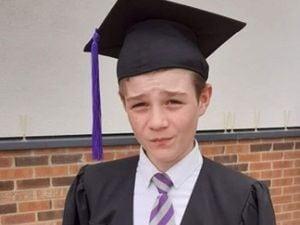Families of Calocane’s victims repeat inquiry calls amid bid to change sentence
The families of Barnaby Webber, Grace O’Malley-Kumar and Ian Coates said failings by several organisations contributed to their deaths.
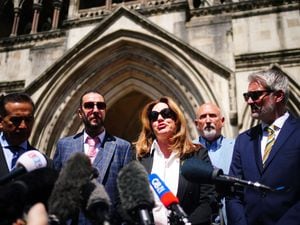
The families of the victims of triple killer Valdo Calocane have reiterated their calls for a public inquiry into the deaths after the Court of Appeal heard a bid to change his sentence.
The relatives of Barnaby Webber, Grace O’Malley-Kumar and Ian Coates said “failure upon failure upon failure” contributed to the killings in Nottingham on June 13 last year.
They spoke after three judges heard a bid from the Attorney General’s Office (AGO) to change Calocane’s sentence, arguing that the indefinite hospital order he was given in January was “unduly lenient”.
Lawyers told the hearing that the 32-year-old, who has paranoid schizophrenia, should be given a life sentence as part of a “hybrid” order, meaning he would be treated in hospital before serving the remainder of his sentence in prison.
The Lady Chief Justice Baroness Carr said a decision would be given “within seven days or so” but recognised the “acute anxiety and distress involved in this very, very tragic case”.
Speaking outside the Royal Courts of Justice following the hearing, Dr Sanjoy Kumar, father of Ms O’Malley-Kumar, said: “Valdo Calocane murdered our children and Ian Coates, and it’s very, very hard for all of us in this process when what we should be doing is grieving for our children, but we are here instead fighting for them.
“But we will fight. We will fight all of the organisations that failed us, and what is becoming abundantly clear is the long list of people and organisations that failed us.
“We have two police forces, Nottinghamshire and Leicestershire, that have failed us, we have got a mental health trust that failed us, we have got an NHS trust that failed us, we have got a county council that failed us. How many more people do we need to add to the list of failures?
“And that is why what we are saying is that to join all of these investigations together, we would robustly ask for a public inquiry for the benefit of every family in England who send their children away to university.
“They should be safe and sound. They should not have the fate that we have had to encounter and that is why we still call for a public inquiry to join up everything when we have found failure upon failure upon failure.”
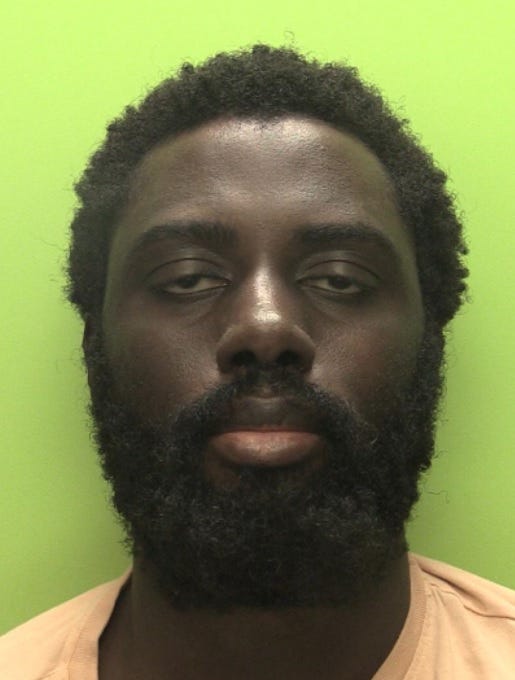
Calocane fatally stabbed 19-year-old university students Mr Webber and Ms O’Malley-Kumar 10 and 23 times respectively as they walked home from a night out in the early hours of June 13, in what prosecutors described as an “uncompromisingly brutal” attack.
He then went on to stab Mr Coates, a 65-year-old school caretaker, 15 times and stole his van which he used to knock down three pedestrians – Wayne Birkett, Marcin Gawronski and Sharon Miller – in Nottingham city centre before being arrested.
He later admitted three counts of manslaughter by reason of diminished responsibility and three counts of attempted murder, with prosecutors accepting his not-guilty pleas to murder charges based on medical evidence.
One psychiatrist told the court that Calocane was suffering a “severe psychotic episode” at the time of the attacks, with others raising concerns over the risks to other prisoners if a hybrid sentence was imposed, and that Calocane’s paranoid schizophrenia is treatment-resistant.
The sentencing judge, Mr Justice Turner, told Calocane that his “sickening crimes” meant he would likely be detained indefinitely in a high-security hospital “very probably for the rest of your life”.
He also made Calocane subject to further restrictions if he is ever discharged, which must be approved by the Justice Secretary.
But Attorney General Victoria Prentis referred the sentence to the Court of Appeal in February, with lawyers telling Wednesday’s hearing that the sentence was “unduly lenient”.
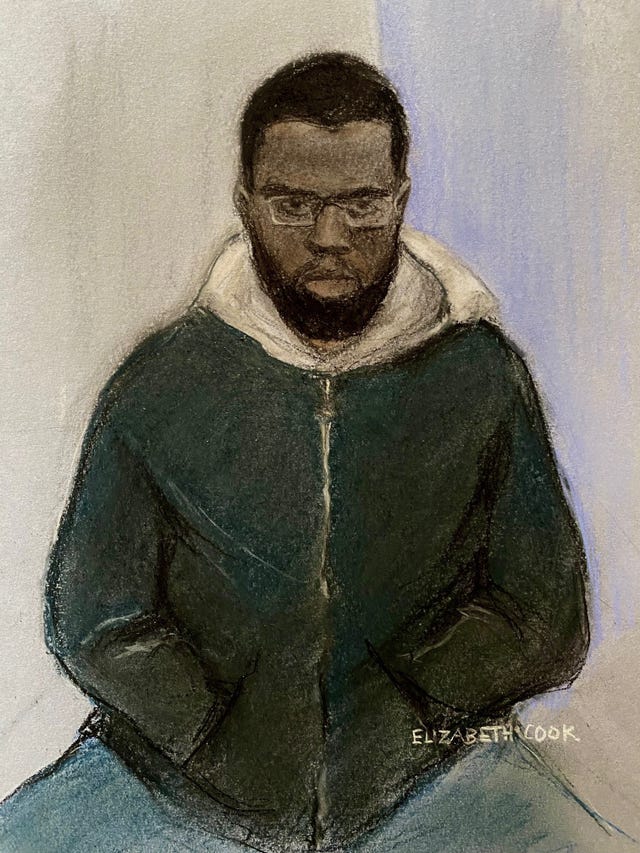
Deanna Heer KC, representing the AGO, said: “The exceptional level of seriousness of the offences was such that the case required the imposition of a sentence with a penal element, an element of punishment.
“The harm caused and the harm risked to members of the public by his crimes was extreme.”
In written submissions, the AGO said: “The learned judge failed to give sufficient weight to the evidence that the offender’s culpability was not extinguished.
“Whilst it is accepted that his ability to exercise self-control and form a rational judgment was substantially impaired, he understood the nature of his conduct and that it was wrong, even in the context of his psychotic beliefs.
“Having identified that the offender’s culpability was low, the learned judge failed to consider the aggravating features which required an uplift from the starting point for a single offence.
“As a result, although the learned judge made a significant uplift to reflect totality, the custodial term failed adequately to reflect the seriousness of the offending.”
Several members of the victims’ families and friends attended the hearing, while Calocane attended via video link from Ashworth high-security hospital near Liverpool.
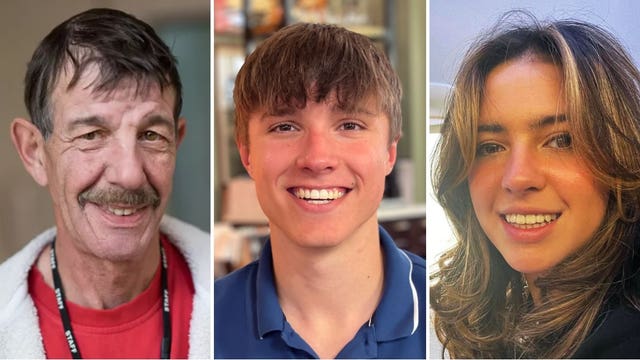
Peter Joyce KC, representing Calocane, said that none of the offences would have been committed “but for the psychosis” and that imposing a hybrid order would mean he would be “punished for being mentally ill”.
He said: “He is never likely to see the light of day again and if that is right and if that is the effect of the sentence Mr Justice Turner passed upon him, then the question we ask is how can that possibly be an unduly lenient sentence?”
He continued: “This defendant’s mental culpability was at the very bottom end of the scale because of the degree of the illness from which he is still grievously suffering.”
Speaking outside court, Emma Webber, mother of Mr Webber, said the families “have not called for what has happened today” but said they were “grateful” to the AGO for referring the case, adding that the hearing was part of an “ongoing struggle”.
She said: “We believe the system is flawed, in the investigations and in the prosecutions, so we are where we are today.
“We are hopeful that three very, very senior judges have listened to all of the information put forward on both sides.”
She continued: “Next week we will finally get some sort of answer but it is not closure, it is not a full stop.
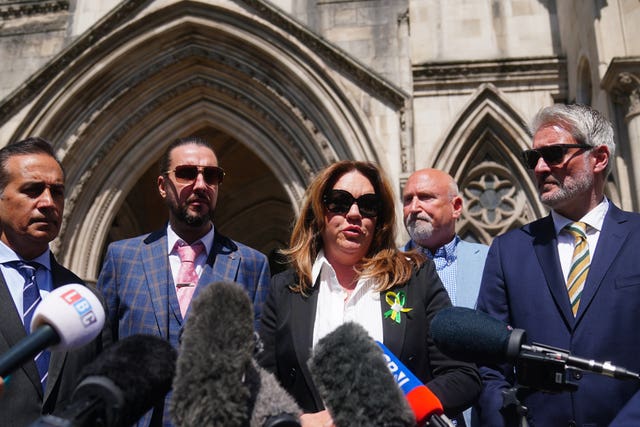
“Like I say, the system is flawed, we should not be here, we should not be in this situation, our children should be alive and our father and grandfather should still be alive.
“It’s just an ongoing part of the struggle and the fight that we’re in.”
If judges rule that a hybrid order should be imposed, they will set the length of time which Calocane should be in custody, with his release then governed by the Parole Board.
Baroness Carr, Lord Justice Edis and Mr Justice Garnham will give their judgment at a later date.


